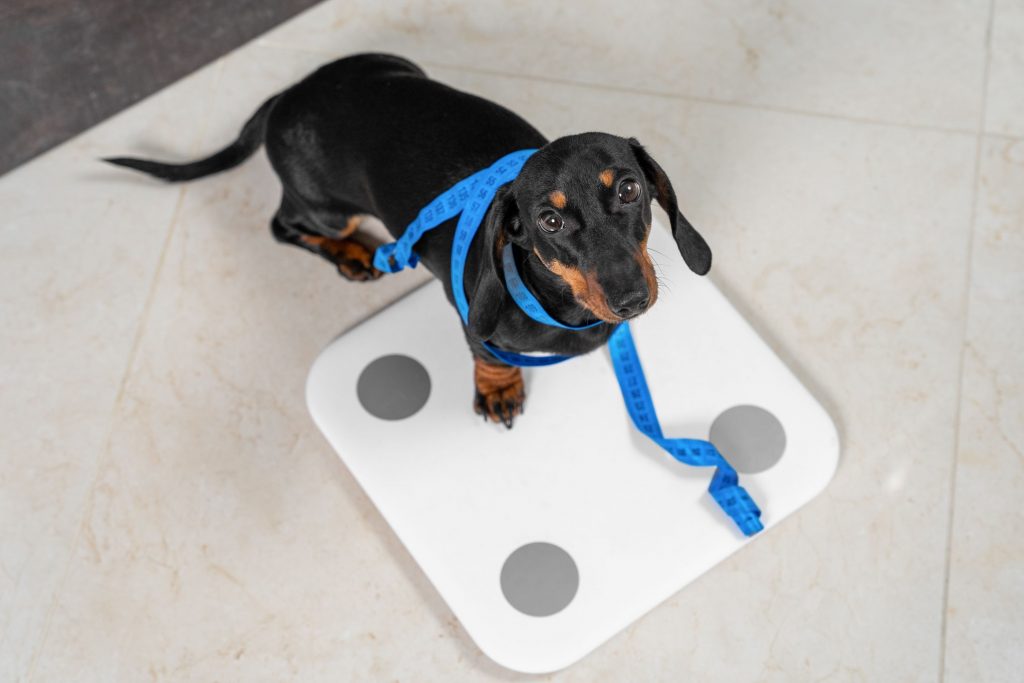
Chubby Puppy? The Importance of Weight Control for Your Pets

If you’ve got a chonky Chow Chow or a tubby tabby, you aren’t alone. According to the Association for Pet Obesity Prevention, an estimated 56 percent of dogs and 60 percent of cats in the United States are overweight.
We understand that, as a pet parent, you may not know what an appropriate weight is for your pet’s specific breed and age, which is one reason why regular checkups are so important. At Arlington Animal Hospital, we weigh your pet at every visit, and if necessary, we will recommend a dog weight management program that is geared toward the weight control needs of your individual dog.
The Dangers of Being Overweight
Pets might look extra cute and cuddly with a few extra LBs, but overweight dogs are more susceptible to serious health conditions than their fit-and-trim counterparts.
Excess fat is a risk factor in many chronic illnesses in pets, including:
- Heart disease
- Diabetes
- Chronic inflammation
- Certain cancers
- High blood pressure
- Respiratory conditions
- Osteoarthritis
- Joint and disc diseases
What Causes Weight Problems in Pets?
A variety of both genetic and lifestyle factors can contribute to weight gain in dogs, including:
- A sedentary lifestyle
- Free feeding (keeping the food bowl full throughout the day)
- Offering too many treats or snacks
- Feeding your pet “people” food
- Neutering or hormone imbalances
- Old age
- Breed genetics (some breeds—like cocker spaniels, labradors, and golden retrievers—are more susceptible to weight gain)
- Endocrine disorders (underactive thyroid or overactive adrenal gland)
How to Tip the Scales in Favor of Your Pet’s Health
In addition to following any pet weight loss program recommended by your veterinarian, there are steps you can take every day to improve your pet’s chances of maintaining a healthy weight.
- Dogs need daily stimulation and exercise to keep them active and healthy. Walk your dog, play fetch, or head to the dog park for plenty of off-leash fun!
- Provide your pet with high-quality food made specifically for the breed and age of your pet. A healthy diet for pets is low in processed carbs and high in healthy proteins. Serve the portion sizes recommended by your veterinarian.
- Reward good behavior with extra belly rubs or head scratches, special attention, or a chew toy, rather than treats.
Focusing on dog weight management throughout your pup’s life is one of the keys to your pet’s longevity. For more information about the importance of weight control in pets, contact us today to schedule a visit.
Contact Us!
2301 Columbia Pike #G-1, Arlington, VA 22204
Phone: (703) 920-5300
Fax: (703) 685-8860
Email: info@myarlingtonvet.com
Office Hours
-
Monday
8 a.m. – 8 p.m.
-
Tuesday
8 a.m. – 8 p.m.
-
Wednesday
8 a.m. – 6 p.m.
-
Thursday
8 a.m. – 6 p.m.
-
Friday
8 a.m. – 6 p.m.
-
Saturday
8 a.m. – 2 p.m.
-
Sunday
CLOSED
- Doctors’ hours are by appointment only.



